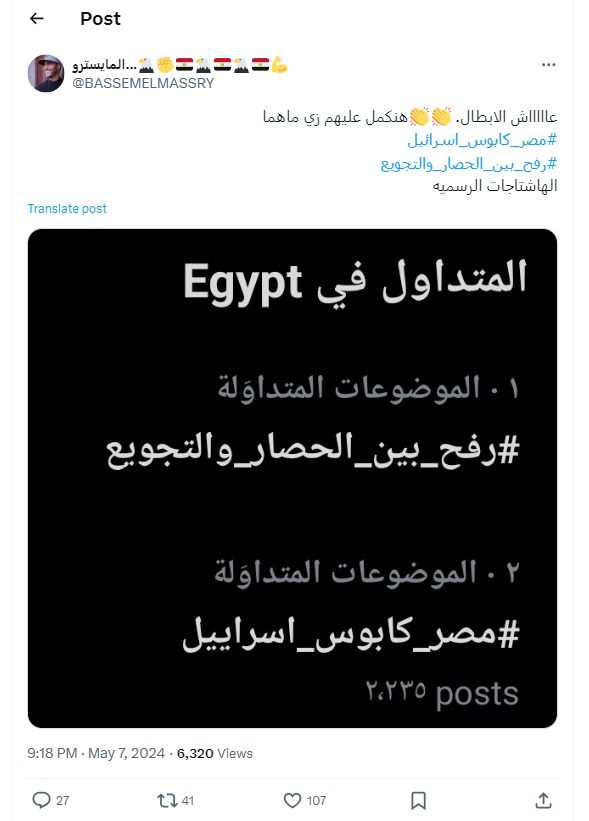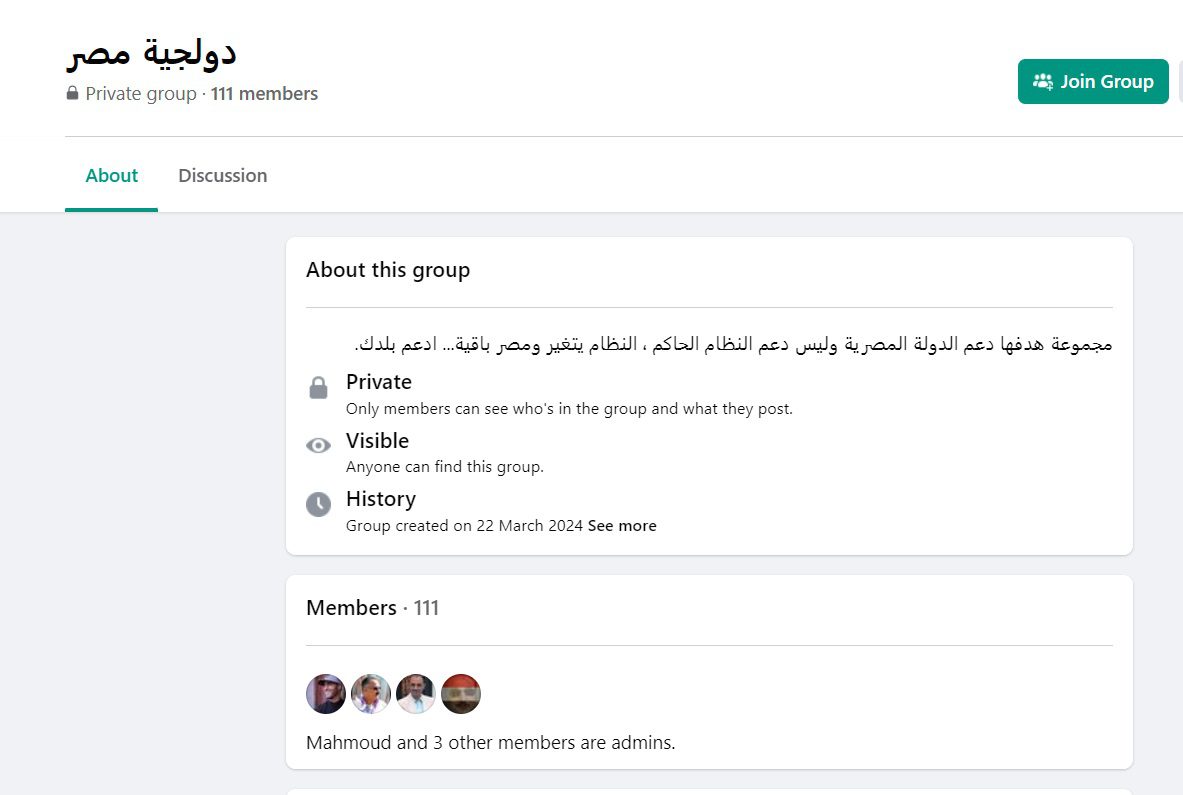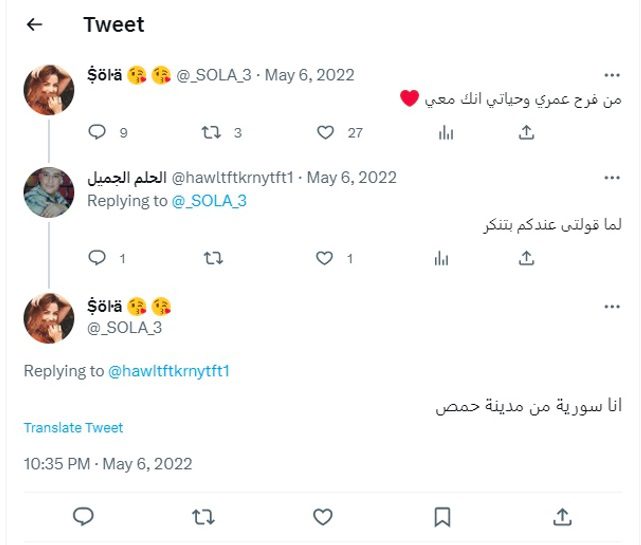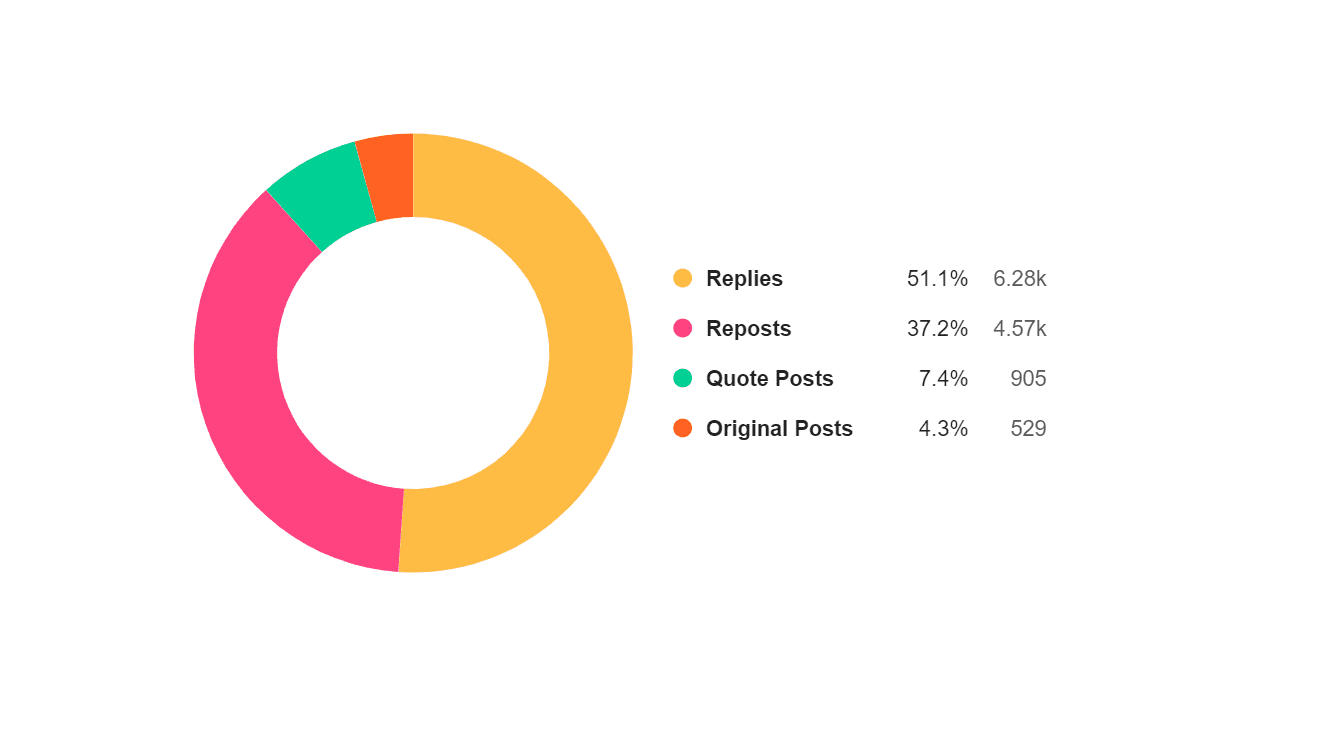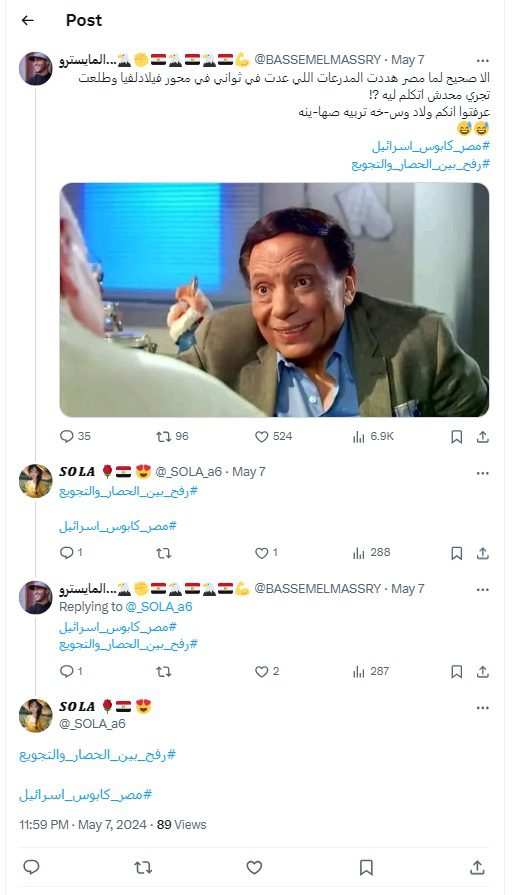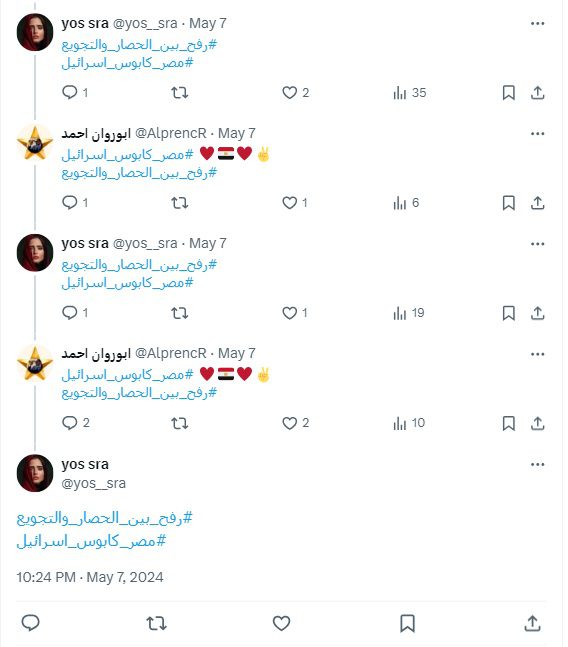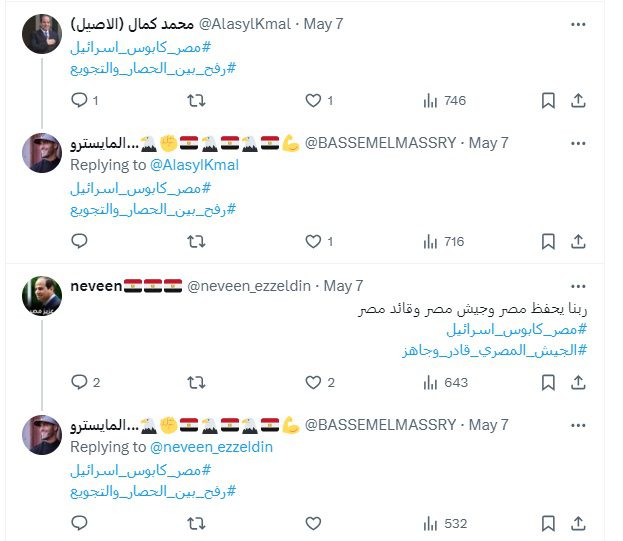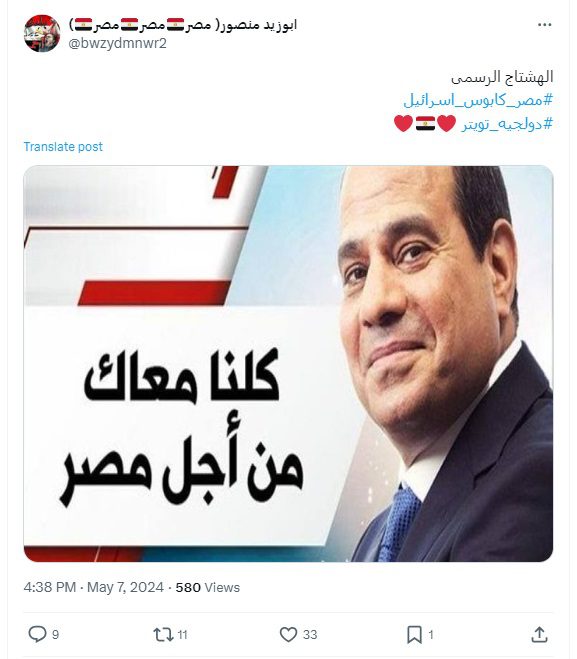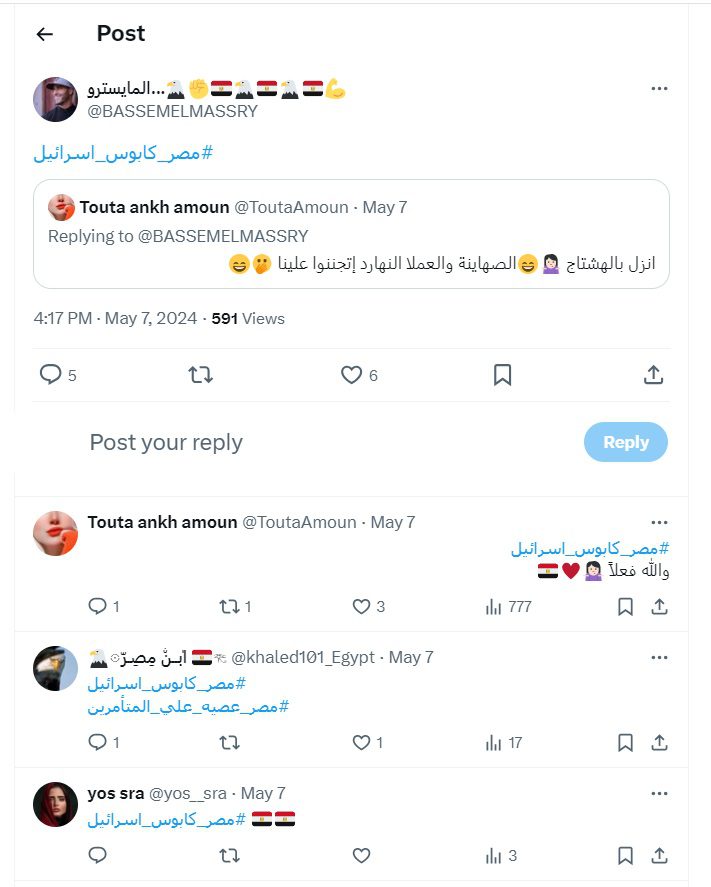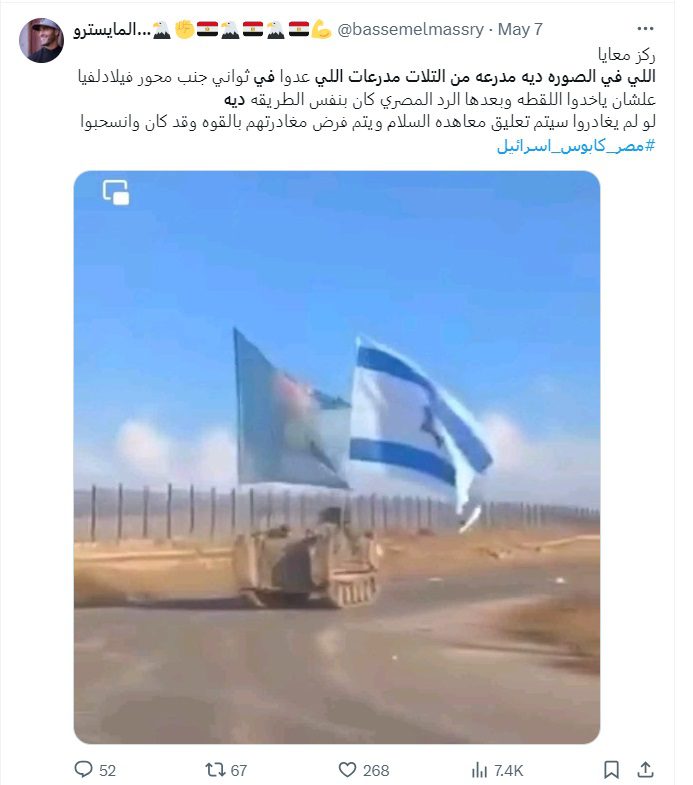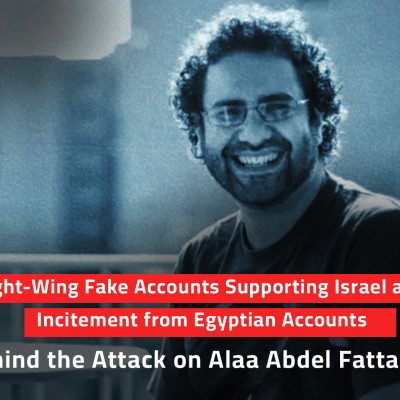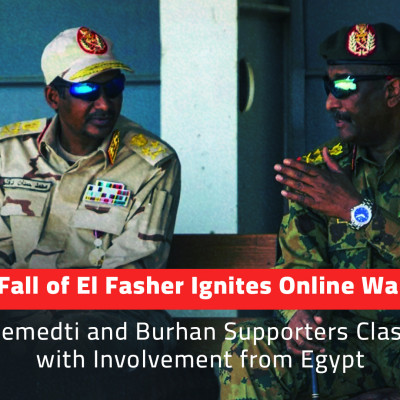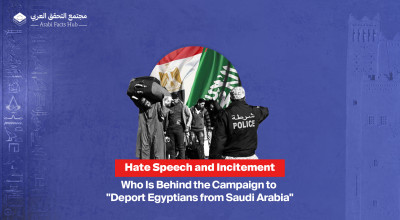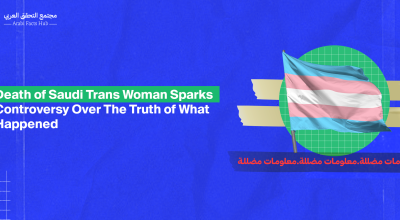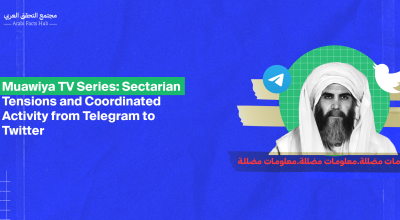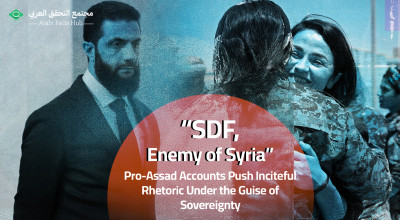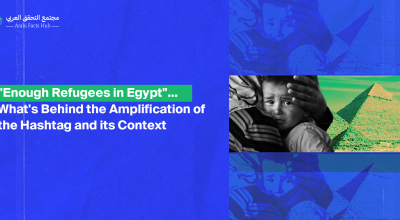Suspicious Online Activities "Supporting and Opposing" Egypt's Stance on the Rafah Offensive
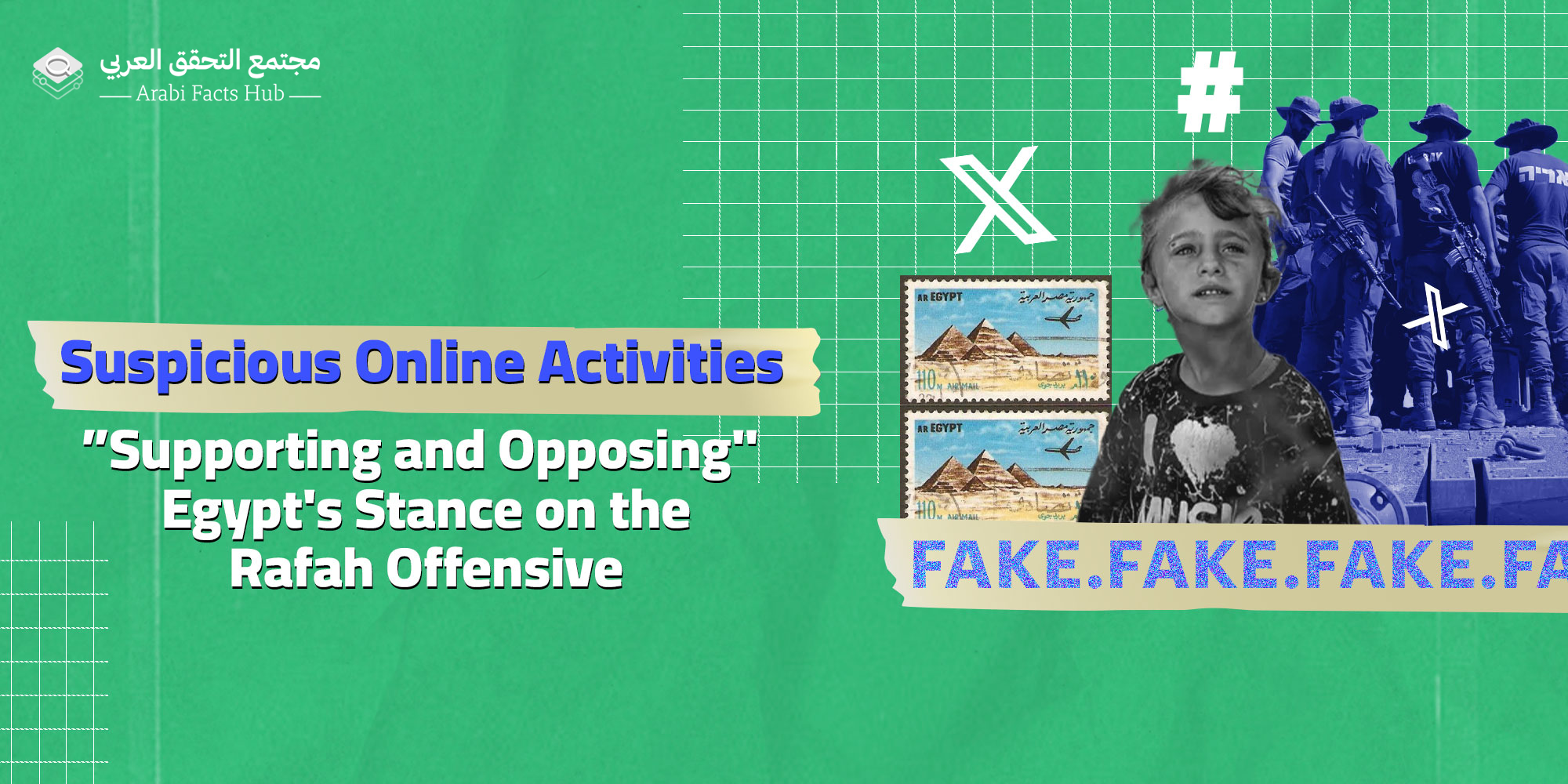
Arabi Facts Hub observed the rise of several hashtags trending on the X (formerly Twitter), coinciding with the Israeli offensive in Rafah. Among them was #Egypt_Israel's_Nightmare, which supports the Egyptian stance against emerging criticism on X.
Cairo condemned the Israeli escalation at the Rafah border crossing, while Tel Aviv denied violating the peace treaty. Simultaneously, Egyptian TV programs echoed Israel's claim that its activities in "Zone D" were not a breach of the treaty. Stretching from east Rafah to Eilat, Zone D houses an Israeli force of four infantry battalions and their vehicles, as stipulated by the 1979 Camp David Accords.
In the meantime, a coordinated propaganda campaign emerged from the Egyptian government following Israel’s control of the Palestinian side of the Rafah crossing, the first such move since Israel's 2005 withdrawal from Gaza.
Arabi Facts Hub observed the rise of several hashtags trending on X, coinciding with the Israeli offensive in Rafah. Among them was #Egypt_Israel's_Nightmare, which supports Egypt's stance against emerging criticisms on X. The hashtag included at least 12,000 posts, viewed 967,000 times by the 9th of the month, generating 40,000 interactions, according to statistics from Meltwater, a social media content analysis tool.
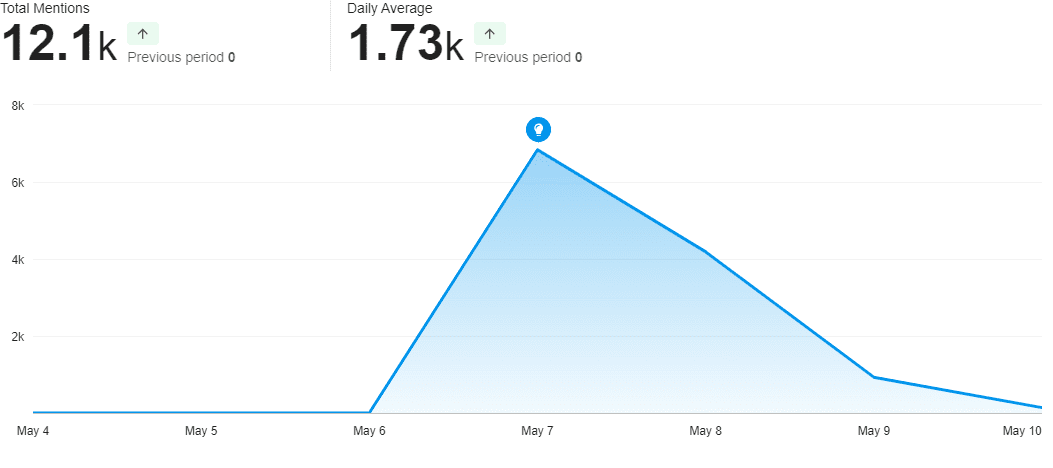
Engagement with the hashtag peaked on the evening of April 7th, driven by 6,837 posts published that day alone.
Most tweeted and most influential
A total of 1,689 accounts participated in the hashtag, including accounts previously identified by Arabi Facts Hub as contributors to orchestrated online campaigns in Egypt. These accounts received higher engagement on the hashtag. Some featured profile pictures of Egyptian President Abdel Fattah el-Sisi, Pharaonic symbols, and Egyptian flags, and they boasted tens of thousands of followers.
Leading these accounts was "Bassem El Masry Maestro (Bassem Bekhit)," known for his significant activity in rallying and amplifying propaganda for the president's policies. Bassem posted at least 412 tweets under the hashtag #Egypt_Israel's_Nightmare.
Previous investigations have highlighted Bassem's role in mobilizing a network of accounts he manages to engage in trolling campaigns and attacking critics of the government. He refers to his group as "Twitter Soldiers" and has a closed Facebook group named "Egypt's Soldiers," established a few weeks ago.
Hours after launching the hashtag, Bassem congratulated his followers on X for making the "official hashtags" trend. This is a common practice for Bassem when initiating campaigns, encouraging more accounts in his network to participate in these activities. Often, he is the first to launch the campaign, setting the stage for others to rally around the hashtag.
The term "Dawlagiya" (statists) dates back several years and refers to government supporters who attack its opponents and critics.
After "Bassem Maestro" in terms of activity on the hashtag comes @_SOLA_a6, with 121 posts, mostly retweets of hashtag-related content. Arabi Facts Hub previously revealed that this account belongs to a Syrian citizen named Sola ‘Adoum, who lives in Homs. Sola has been notably involved in Bassem's campaigns over the years, with her previous account username being @_SOLA_3.
Dandarawy El Hawary, the Executive Editor-in-Chief of the pro-government website and newspaper "Youm7" (@Dandrawy_hawary), also participated in the hashtag. He retweeted at least seven posts. El Hawary has a following of 131,000 on X.
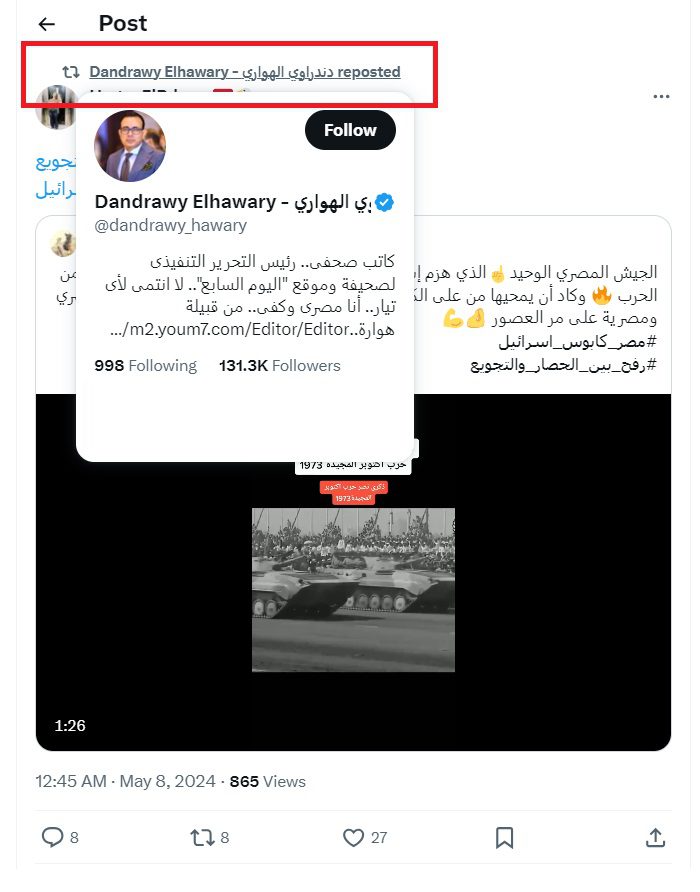
Signs of coordinated activity
Responses to tweets under the hashtag #Egypt_Israel’s_Nightmare accounted for 51.1% of the total, amounting to 6,200 posts. Retweets/reposts made up 37.2%, or at least 4,200 posts. Original tweets comprised only 4.3%, equivalent to 529 posts. The dominance of retweets and responses indicates a coordinated effort driving the hashtag's activity.
This observation is supported by our analysis of the responses under the hashtag, which appear to be "spam" — random posts aimed at artificially boosting the hashtag's visibility in a coordinated manner. In the screenshots below, Bassem the Maestro posts a tweet, followed by a response from an account within his network containing several hashtags, including the one under review. Bassem then replies again with the same hashtags, creating a continuous loop.
Bassem launched the campaign at 04:17 PM on April 7, after being prompted by another account named "Tutankhamun" to "drop the hashtag." Bassem responded with the hashtag #Egypt_Israel's_Nightmare, and other accounts began using the same hashtag in their comments. Some described it as the "official hashtag" representing the stance of the "Twitter’s Dawlagiya," often accompanied by a picture of President Sisi.
Upon examining the publication times, we observed high-density posting at specific hours: 3 PM, 5 PM, and 10 PM on April 7, as well as 10 PM on April 8. The similarity in posting times and the synchronized bursts of activity at these specific hours throughout the day suggest organized, non-organic activity.
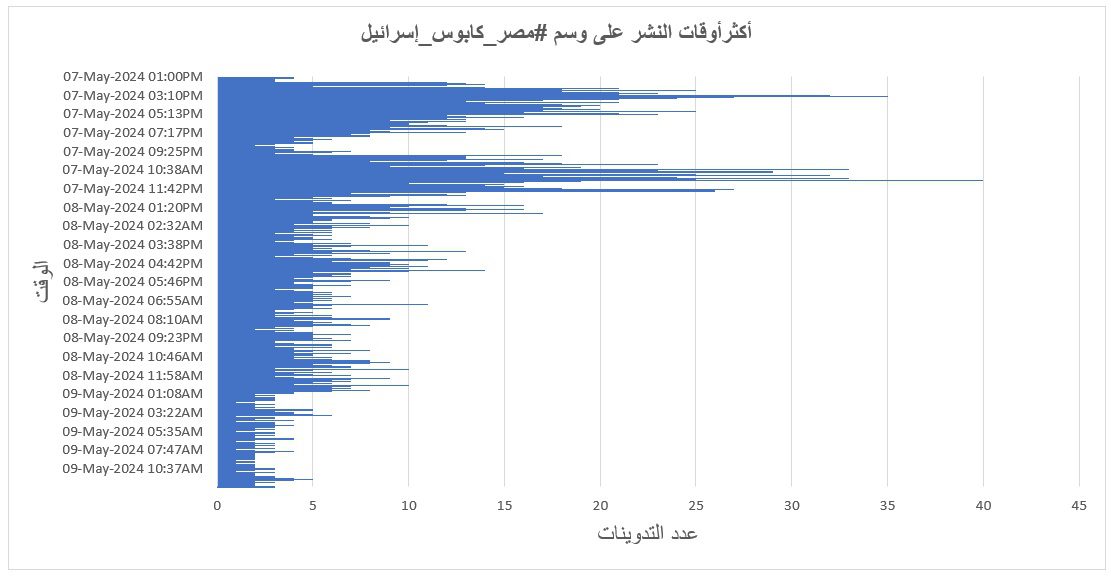
False information .. What does the content on the hashtag say?
About a week after the Israeli army's invasion of the Philadelphi Corridor and its control over the Rafah crossing, state-run Al-Qahera News Channel reported on Saturday, May 11, that Egypt refused to coordinate with Israel regarding the entry of humanitarian aid through the crossing. The refusal was in protest against the "unacceptable" Israeli escalation, as reported by the channel citing a high-level source.
When Israeli forces began spreading in the area the previous Monday, Egyptian campaign accounts falsely claimed that Israeli troops had withdrawn from the Philadelphi Corridor and Rafah crossing after taking photos and videos. These claims were inaccurate, as Israeli forces remained in the corridor and were gradually expanding their operations in the region.
Campaign leader Bassem El Maestro promoted this misinformation, which was repeatedly shared by accounts on X and Facebook pages using the hashtag #Egypt_Israel's_Nightmare. One such post on a Facebook account named Mohamed Taha Suleiman was signed by "El Maestro," confirming that the coordination among these accounts spans multiple social media platforms.
In his posts, Bassem often uses images of Egyptian celebrities in online campaigns. In one post, he wrote: "It's not a club fight! In 48 hours, Israel will pack up and return from where it came, away from the Rafah crossing," accompanied by a picture of actor Karim Abdel Aziz. This tweet, along with the image, spread across both Facebook and X in the same format.
Islamic accounts and AI images
In contrast, several accounts, some aligned with the Muslim Brotherhood, actively criticized the Egyptian stance on Israeli movements in Rafah. These accounts often used sarcasm and scenes from Egyptian movies to disseminate repetitive posts.
Coinciding with the Israeli operations in Rafah, AI-generated images circulated online, one notably showing President Sisi with the Israeli flag on his forehead, looking mockingly at Palestinian children. The caption read, "Sisi deliberately participates in the Gaza blockade."
Most of these images were posted by Iraqi accounts expressing allegiance to Iran-aligned forces in Iraq, such as @alsafa229, @hasna313_2, and @_reyhaneh_0. Upon examining the interactions with @_reyhaneh_0's post containing the image, it became apparent that many of the engaging accounts used profile pictures of leaders from Iran-aligned factions, such as Hezbollah's Hassan Nasrallah, the former Quds Force commander Qassem Soleimani, and Abu Mahdi Al Muhandis, the late deputy head of the Popular Mobilization Forces in Iraq. Additionally, these accounts often displayed flags of Iran, Iraq, Syria, Lebanon, and Yemen, and used the term "Axis of Resistance" in their bios.
Among the accounts that reposted @_reyhaneh_0's tweet were ones named "Resistance Support Team," "Alternative Anonymous Resistor," "Horra Support," "Resistance Icon," and "Retweet." The use of "support" in these account names typically indicates they are part of networks used to amplify hashtags and online campaigns. When such accounts prominently display the retweet symbol, it suggests their primary role is to boost the content of other accounts during coordinated online campaigns, indicating that they are likely fake accounts not owned by real individuals.
When we attempted a reverse image search for the image of the Egyptian president, we discovered one of the earliest versions posted on the account of Iranian media personality @DShhla back in March.
